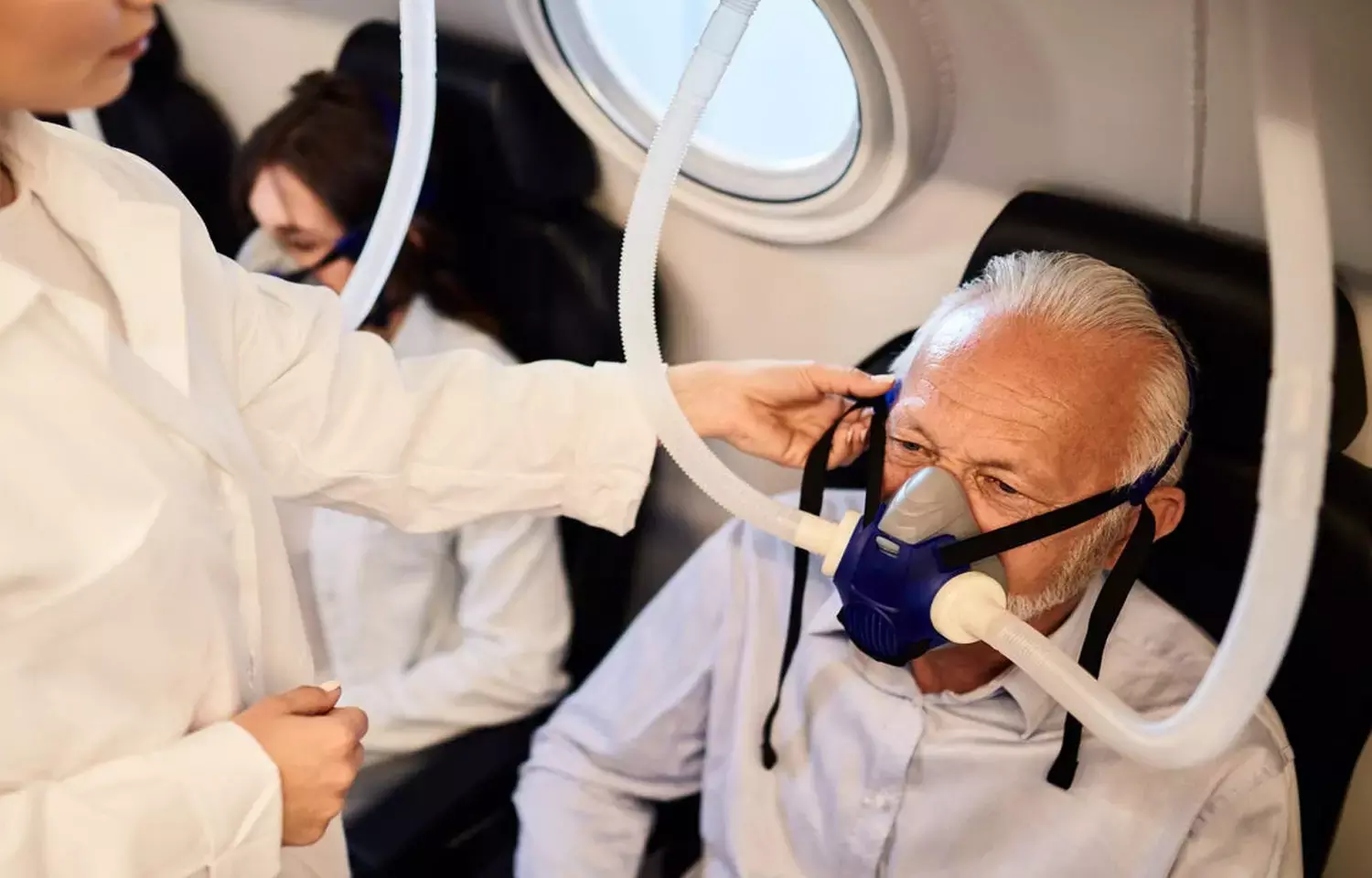- Home
- Medical news & Guidelines
- Anesthesiology
- Cardiology and CTVS
- Critical Care
- Dentistry
- Dermatology
- Diabetes and Endocrinology
- ENT
- Gastroenterology
- Medicine
- Nephrology
- Neurology
- Obstretics-Gynaecology
- Oncology
- Ophthalmology
- Orthopaedics
- Pediatrics-Neonatology
- Psychiatry
- Pulmonology
- Radiology
- Surgery
- Urology
- Laboratory Medicine
- Diet
- Nursing
- Paramedical
- Physiotherapy
- Health news
- Fact Check
- Bone Health Fact Check
- Brain Health Fact Check
- Cancer Related Fact Check
- Child Care Fact Check
- Dental and oral health fact check
- Diabetes and metabolic health fact check
- Diet and Nutrition Fact Check
- Eye and ENT Care Fact Check
- Fitness fact check
- Gut health fact check
- Heart health fact check
- Kidney health fact check
- Medical education fact check
- Men's health fact check
- Respiratory fact check
- Skin and hair care fact check
- Vaccine and Immunization fact check
- Women's health fact check
- AYUSH
- State News
- Andaman and Nicobar Islands
- Andhra Pradesh
- Arunachal Pradesh
- Assam
- Bihar
- Chandigarh
- Chattisgarh
- Dadra and Nagar Haveli
- Daman and Diu
- Delhi
- Goa
- Gujarat
- Haryana
- Himachal Pradesh
- Jammu & Kashmir
- Jharkhand
- Karnataka
- Kerala
- Ladakh
- Lakshadweep
- Madhya Pradesh
- Maharashtra
- Manipur
- Meghalaya
- Mizoram
- Nagaland
- Odisha
- Puducherry
- Punjab
- Rajasthan
- Sikkim
- Tamil Nadu
- Telangana
- Tripura
- Uttar Pradesh
- Uttrakhand
- West Bengal
- Medical Education
- Industry
Hyperbaric oxygen can help manage severe hypoxemia in patients with COVID-19: BMJ Study

Argentina: The efficacy of HBO2 in the treatment of COVID-19 with severe hypoxemia was shown in a new study done by Mariana Cannellotto and colleagues. The findings of this study were published in BMJ's Emergency Medicine Journal on 14th December, 2021.
The pathogenesis of hypoxemia in COVID-19 is not entirely known. Many individuals have undergone invasive and costly hypoxemia therapies. The limited literature suggests that hyperbaric oxygen is a safe and effective oxygenation strategy for COVID-19 patients, although further research is needed. Therefore, this study was conducted with the objective to assess the safety and effectiveness of HBO2 in the treatment of hypoxemia in COVID-19 patients, as well as the time to hypoxemia correction.
Between July and November 2020, a multicenter, open-label randomized controlled experiment was conducted in Buenos Aires, Argentina. For 7 days, patients with COVID-19 and severe hypoxemia (SpO2 90% despite oxygen supplementation) were randomly allocated to either HBO2 therapy or the conventional treatment for respiratory symptoms. The HBO2 therapy was scheduled for 5 sessions (1 per day) lasting 90% at 1.45 atmosphere absolute (ATA). Time to normalize oxygen requirement to SpO2 93%, need for mechanical breathing support, development of acute respiratory distress syndrome, and mortality within 30 days were the outcomes. A sample size of 80 patients was projected, with an interim analysis planned after evaluating outcomes for 50% of the patients.
The results stated as follow:
1. The trial was halted following the interim analysis. 40 patients were randomly assigned to one of two groups, with 20 in each. The average age was 55.29.2 years.
2. At the time of admission, the most common symptoms were dyspnea, fever, and odynophagia; the overall SpO2 was 85.1%.
3. The treatment group got an average of 6.21.2 HBO2 sessions. The median time to correct hypoxemia in the treatment group was 3 days (IQR 1.0–4.5) vs 9 days (IQR 5.5–12.5) in the control group (p0.010).
4. The odds ratio (OR) for recovery from hypoxemia in the HBO2 group vs the control group on day 3 was 23.2 (95% CI 1.6 to 329.6; p=0.001).
5. There was no statistically significant difference between treatments for acute respiratory distress syndrome, mechanical ventilation, or mortality within 30 days of hospitalization.
In conclusion, this therapy might be easily accessible in a variety of contexts. Portable hyperbaric chambers allow for quick setup, avoiding the need to move patients to different hospital locations and reducing the danger of virus transmission. The data suggest the efficacy of hyperbaric oxygen in the treatment of COVID-19 patients with severe hypoxemia; however, bigger studies are required to validate the therapy benefits on survival.
Reference:
Cannellotto, M., Duarte, M., Keller, G., Larrea, R., Cunto, E., Chediack, V., Mansur, M., Brito, D. M., García, E., Di Salvo, H. E., Verdini, F., Domínguez, C., Jorda-Vargas, L., Roberti, J., Di Girolamo, G., & Estrada, E. (2021). Hyperbaric oxygen as an adjuvant treatment for patients with COVID-19 severe hypoxaemia: a randomised controlled trial. In Emergency Medicine Journal (p. emermed-2021-211253). BMJ. https://doi.org/10.1136/emermed-2021-211253: a randomised controlled trial Emergency Medicine Journal Published Online First: 14 December 2021. doi: 10.1136/emermed-2021-211253
Medical Dialogues consists of a team of passionate medical/scientific writers, led by doctors and healthcare researchers. Our team efforts to bring you updated and timely news about the important happenings of the medical and healthcare sector. Our editorial team can be reached at editorial@medicaldialogues.in.
Dr Kamal Kant Kohli-MBBS, DTCD- a chest specialist with more than 30 years of practice and a flair for writing clinical articles, Dr Kamal Kant Kohli joined Medical Dialogues as a Chief Editor of Medical News. Besides writing articles, as an editor, he proofreads and verifies all the medical content published on Medical Dialogues including those coming from journals, studies,medical conferences,guidelines etc. Email: drkohli@medicaldialogues.in. Contact no. 011-43720751


